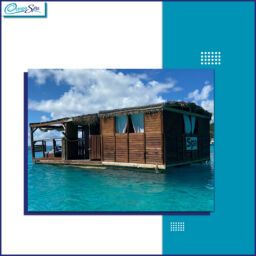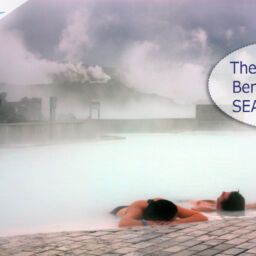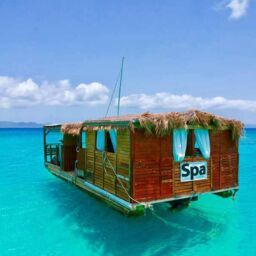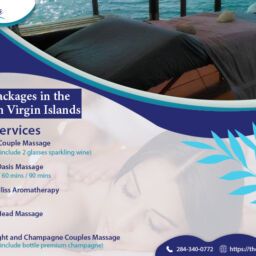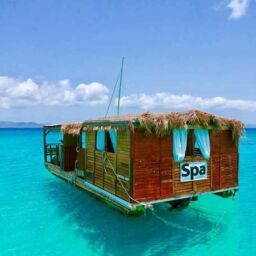Our oceans are in the worst state they have ever been. The sea is choked with plastic and heavy metals that are killing wildlife and destroying fisheries. We live on a blue planet, and the oceans contain 99% of available ecological space on Earth. Our atmosphere and the climate rely on the oceans, which has absorbed 50% of the greenhouse gases emitted by humans. But our oceans can also provide an opportunity for prosperity.
The “blue economy” is a radical approach to rethinking the way we interact with our oceans. Small island nations such as Seychelles are pioneering this approach to see the oceans as a resource that can generate wealth while simultaneously improving ecosystem health. By giving the oceans greater value, local people are encouraged to preserve them for future generations.

What Is The Blue Economy?
Ocean health is key to the blue economy. The concept involves sustainable management of oceans for now and future generations. Healthy seas are key not only for the health of our environment, but also to accelerate economic growth, create jobs, and fight poverty. Recognizing the great potential of the blue economy, world leaders and scientists united for strategic talks about the future of our oceans at the first Sustainable Blue Economy Conference held in Nairobi, Kenya, in November 2018. The world can improve the health of the oceans, seas, lakes, and rivers and ecosystems they support which are under increased threats and decline across the globe.
At its core, the blue economy sets a framework for the international community to actively work on conserving its ocean resources and develop more sustainable habits to protect ocean ecosystems. The blue economy is a source of economic growth – not just a way to protect the environment but also a source of food, jobs, and water. The World Wildlife Fund estimates that if the ocean were a country, it would have the seventh largest economy in the world. Because over 3 billion people around the world rely on the biodiversity of our world’s oceans and seas for their livelihood, nations must work together to protect these important natural resources for generations to come.
The United Nations has recognized the importance of the blue economy and its important role in a sustainable future for the world’s oceans. Sustainable Development Goal 14, aims to “conserve and sustainably use the oceans, seas and marine resources.” The UN seeks to prevent and reduce marine pollution of all types by 2025, and sustainably manage, conserve, protect, and restore coastal and marine ecosystems over the next 5 to 10 years. In addition, the SDG 14 aims to conduct greater scientific research into ocean health and marine biodiversity, particularly in small island developing states (SIDS) and least developed countries (LDCs). The inclusion of oceans as an SDG is a signal to help small island developing countries thrive economically from the sustainable use of marine resources, driving tourism and better fisheries management.
The blue economy is particularly important for the fiscal well-being of SIDS. In small island nations such as Palau and Seychelles, marine-based tourism represents over half of export earnings, and fisheries can represent anywhere from 10% to 50% of these nations’ GDP. Sustainable fishing practices coupled with environmental conservation efforts can ensure that the coastal natural resources utilized so heavily by these nations can continue to exist for centuries to come.
Palau and Seychelles: Leaders In The Blue Economy
Small island nations which benefit economically from the world’s oceans have pioneered the blue economy approach to utilize the oceans as a resource to improve their nations’ wealth while preserving the health of our great oceans. SIDS, as well as other coastal states, have a huge opportunity with the blue economy to give positive economic benefits for citizens alongside improved environmental protection, Palau and Seychelles are two island countries which serve as excellent case studies for the blue economy.
Seychelles Ambassador to the United Nations, Ronald Jumeau, pointed out the importance of rethinking the relationship with the oceans. He said, “The blue economy allows countries like Seychelles to put oceans at the center of our finances. We are not a small island state – we are a large ocean nation! ”
The Seychelles is one of the world’s premier biodiversity hotspots and, as a global leader in sustainable ocean use, represents another blue economy success story – undertaking a transition to sustainable ocean management. More eco-friendly fishing activity in Seychelles will diversify the small island nation’s economy, create high-value jobs, improve food availability and security for the small nation, and sustainably manage and protect the nation’s oceanic resources. The islands also launched the world’s first Sovereign Blue Bond, demonstrating the potential for countries to harness capital to obtain finance for the sustainable use of marine resources.

Meanwhile in the Pacific Ocean nation of Palau, which is comprised of over 250 islands with a cumulative 1519 km of coastline, an equally ambitious undertaking is happening.. Known around the world for its commitment to conservation of the oceans and wildlife, Palau has designated nearly 80% of its territorial waters as a marine sanctuary. Diving is the main tourist attraction in this nation, and Palau’s tourism board has sought to make tourism more sustainable by working on bringing more ‘high-value’ travelers to their small island country. By focusing their tourism efforts on marketing to smaller numbers of high-paying tourists, Palau has aimed to reduce the stress on the marine areas. Palau’s tourism board has also focused on more sustainable tourism activities, such as bird watching and sports fishing, as well as local cultural activities. The nation also became the first nation to enforce a pledge on all visitors to act in an ecologically responsible way.
The blue economy can provide a model for us to rethink how we preserve and sustain and improve our biodiverse ocean resources for future generations. While small island nations have much to gain from the blue economy, the worldwide importance of a healthy ocean ecosystem cannot be overstated and urgent action must be made by all countries for its protection.


